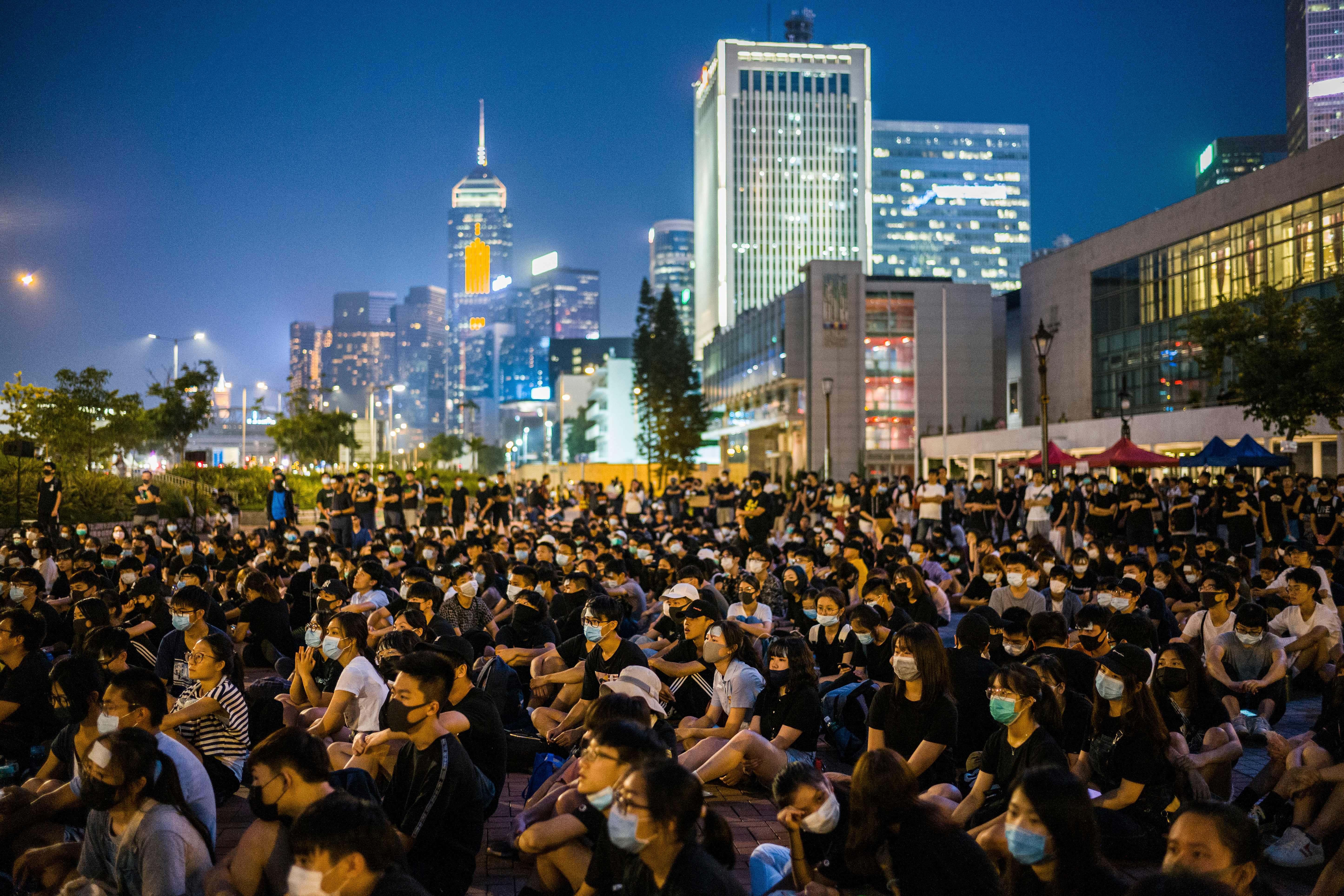Secondary school students attend a rally at Edinburgh Place in Hong Kong on August 22, 2019.
Anthony Wallace | AFP | Getty Images
Even after months of protests and escalating violence, Hong Kong is still a “very good proxy” for foreign investors wanting to access the vast China market, an economist said on Wednesday.
“Since 1997, (Hong Kong) has really evolved from quite a broad-based international financial center to now, a more China-centric offshore center. So if we take that into consideration, Hong Kong has been a very good proxy for foreign investors to invest into China-related assets,” said Gary Ng, Asia Pacific economist at Natixis.
He attributed it to three factors: the territory’s free capital outflow structure, its legal framework, and a very simple tax system.
Hong Kong — a former British colony that returned to Chinese rule in 1997 — has been crippled by widespread demonstrations since early June. It operates as a semi-autonomous territory under the “one country, two systems” principle, a structure that grants Hong Kong citizens some degree of financial and legal independence from the mainland.
Limited inflows into mainland cities
There are still parts of Hong Kong’s financial industry that cannot be easily shifted, Ng said, but noted that some cities in mainland China could challenge the territory’s status.
“When China starts to open more of its onshore market, we will start to see more financial development … this is going to attract more inflows from foreign investors into the onshore market directly,” said Ng.
However, China maintains relatively close capital account conditions now — a stark contrast to Hong Kong’s free capital flows. “I think this is quite important for investors and also generally for the financial market itself,” Ng added.
“There will be a certain substitution effect, but however, in terms of the current investments parked in Hong Kong, I think that change will still be quite limited unless China really speeds up in opening the onshore market,” said Ng.
Natixis expects Hong Kong’s economy to contract by 1% to 2% in 2019. If current tensions persist, the economy could also shrink by 2% to 3% in 2020.
Hong Kong’s economy contracted 2.9% in the third quarter of 2019 from a year ago. On a quarterly basis, it shrank 3.2%.
— CNBC’s Grace Shao and Eustance Huang contributed to this report.
